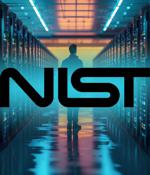Security News

NIST has finalized its principal set of encryption algorithms designed to withstand cyberattacks from a quantum computer. The announced algorithms are specified in the first completed standards...

The National Institute of Standards and Technology today released the long-awaited post-quantum encryption standards, designed to protect electronic information long into the future - when quantum computers are expected to break existing cryptographic algorithms. The finalized standards include three post-quantum cryptographic algorithms.

A recent paper from Tsinghua University raised doubts about lattice-based cryptography for PQC, though an error was found. This has sparked questions about the strength of soon-to-be-standardized PQC algorithms.

On April 10, Yilei Chen from Tsinghua University in Beijing posted a paper describing a new quantum attack on that shortest-path lattice problem. Adi Shamir, the "S" in RSA and a 2002 recipient of ACM's A.M. Turing award, described the result as psychologically significant because it shows that there is still a lot to be discovered about quantum cryptanalysis of lattice-based algorithms.

Popular enterprise services provider Zoom has announced the rollout of post-quantum end-to-end encryption (E2EE) for Zoom Meetings, with support for Zoom Phone and Zoom Rooms coming in the future....

Your profile can be used to present content that appears more relevant based on your possible interests, such as by adapting the order in which content is shown to you, so that it is even easier for you to find content that matches your interests. Content presented to you on this service can be based on your content personalisation profiles, which can reflect your activity on this or other services, possible interests and personal aspects.

Zoom has announced the global availability of post-quantum end-to-end encryption for Zoom Meetings, with Zoom Phone and Zoom Rooms to follow soon. Meetings is a popular video conferencing service that allows users to host and join virtual meetings with high-definition video and audio, featuring screen sharing, chat, and participant management, making it a popular choice for businesses, virtual events, and online classes.

Some Google Chrome users report having issues connecting to websites, servers, and firewalls after Chrome 124 was released last week with the new quantum-resistant X25519Kyber768 encapsulation mechanism enabled by default. Google started testing the post-quantum secure TLS key encapsulation mechanism in August and has now enabled it in the latest Chrome version for all users.

The researchers used an approach dubbed 'blind quantum computing' to connect two quantum computing entities; this simulates the situation where an employee at home or in an office remotely connects to a quantum server via the cloud. Professor David Lucas, the co-head of the Oxford University Physics research team, said in a press release: "We have shown for the first time that quantum computing in the cloud can be accessed in a scalable, practical way which will also give people complete security and privacy of data, plus the ability to verify its authenticity."

Quantum computing spreads across a wide range of disciplines both on the hardware research and application development fronts, including elements of computer science, physics, and mathematics. The goal is to combine these subjects to create a computer that utilizes quantum mechanics to solve complex problems faster than on classical computers.